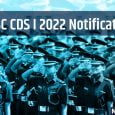
Photographer: Tim Boyle/Bloomberg
Millennials are feeling discouraged . Those who previously held a more positive perception about business have now taken a sharp turn, declining at a rapid pace. In a newly released 2018 study by Deloitte, only 48% of Millennials believe businesses behave ethically compared to 65% in 2017. And their criticism extends to leadership as they don’t see a clear vision from today’s executives on how they will help improve society. These factors impact where Millennials want to work and the roles they want to pursue. Companies don’t seem to be offering what Millennials want as well as what they need to succeed.
Last year, I presented at the Global Drucker Forum in Austria, Vienna and shared that inclusive leadership is the pathway to employee prosperity and employer profitability with Millennials driving the demand. This is no surprise when you see the trends in career path interests of Millennial women. Take for example, Kaylyn who is currently an intern and identifies as Asian American with roots in both Japan and Vietnam. Back at Santa Clara University in California, she led an executive board of 25 people, in which they organized and plannned events around racial justice and equality in response to current events on campus and in the country. She works with other student leaders of color to create events and platforms for conversations pertaining to Japanese American and Asian American communities, as well as other intersectional and inter-marginalized communities, such as the LGBTQIA community, undocumented community, and religious minorities. Her advocacy for diversity and inclusion has led to discussions with administrators and the Office of Student Life. These are life skills and leadership capabilities that any company should leap to engage and advance.
This is also déjà vu for me. In 2000, I served as Student Government President at the University of Pittsburgh where I also advocated for a Multicultural Center and worked with our Vice Provost of Student Affairs on a vision for elevating and celebrating our incredibly diverse student body. But a clear pathway to continue this work in corporate America wasn’t visible to me almost 20 years ago whereas now departments and offices for Global Inclusion and Diversity are growing across Fortune 500 companies. This is where Millennials and Gen Z want to be and what they expect to see at potential employers.
In a recent survey I facilitated with current female college students, I asked them to describe their ideal boss. They shared sentiments such as ”someone who respects, honors and truly values each other’s opinions” and “someone who can create conversations where we can teach one another” are quite reflective of the inclusive, authentic leadership style Millennials crave. They value openness, transparency, strong communication and the ability to adapt to different styles of connecting. And it was also quite clear that they don’t want managers be martyr role models but to demonstrate a commitment to their professional and personal life.
Diversity and flexibility are clear factors in attracting and retaining millennial talent particularly women . Culture and rewards aligned with their values will get them through the door but learning and inclusion keep them from walking back out. Year after year, studies find that the investment in technical and leadership skills and knowledge for Millennials and Gen Z is lacking. Only four in 10 millennials and three in 10 working Gen Z believe they have the skills and knowledge they’ll need to thrive. That’s where the disappointment turns to discouragement and disengagement. Why aren’t companies investing in their growth? They think they won’t stick around and they believe it’s too costly. Developing leadership skills and competencies that help to unleash their potential doesn’t always have to be home grown. You can send Millennials to conferences, encourage them to sit on panels (they have a voice too even as interns!) and sponsor their participation in online learning platforms.
[“Source-forbes”]




